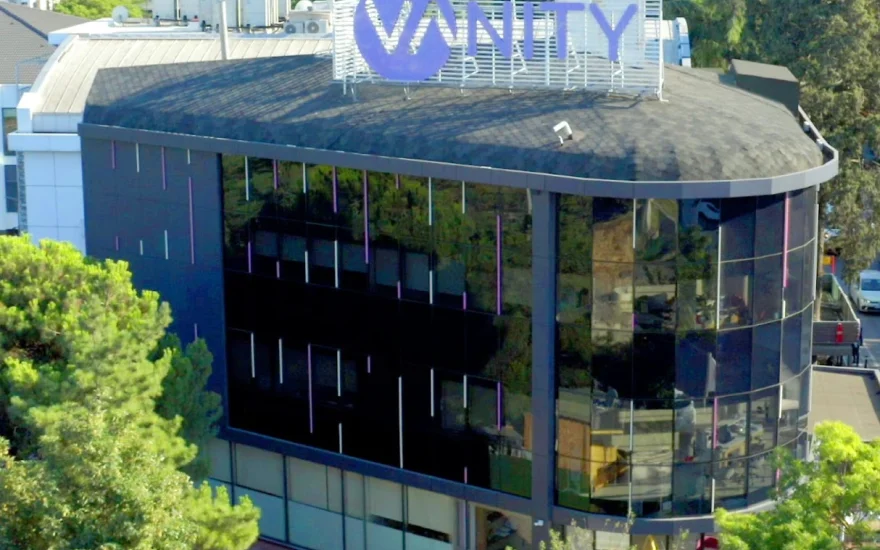
Gastric Sleeve
Gastric Sleeve in Turkey: Your Full Guide to Healthcare in Turkey
Turkey has become a top destination for medical tourism, especially gastric sleeve. Healthcare in Turkey offers top-notch medical facilities, experienced surgeons, and affordable treatments, that's why it's a first choice for people who want to have weight loss surgery.
What is Gastric Sleeve Surgery?
Gastric sleeve surgery, or sleeve gastrectomy, is a bariatric surgery to help you lose weight. This surgery removes 75-80% of the stomach and creates a tube-like structure. The smaller stomach size limits food intake and reduces the production of hunger hormones to help you lose weight in the long term.
And on top of all that gastric sleeve surgery at Healthcare in Turkey also includes pre-operative evaluation with blood tests, imaging studies, and nutritional counseling. During the surgery, patients will be under general anesthesia and laparoscopic surgery which means small incisions and faster recovery. Post-operatively patients will be monitored for any complications such as leakage or infection and guided for dietary adjustments and lifestyle changes. The multidisciplinary team at Healthcare in Turkey will have endocrinologists, dietitians, and psychologists to support you throughout your journey. This approach will guarantee optimal results and long-term weight loss.
Why Healthcare in Turkey for Gastric Sleeve Surgery?
Modern Medical Facilities
Healthcare in Turkey has state-of-the-art hospitals and clinics that meet international standards so you get the best care.
Experienced Surgeons
The surgeons with Healthcare in Turkey are highly trained and experienced in bariatric surgery. Many have international training and bring a lot of expertise to their practice.
Affordable Treatment
The cost of gastric sleeve surgery in Turkey is much lower than in many Western countries. You can save up to 70% of your medical expenses without compromising on the quality of care.
Full Packages
Healthcare in Turkey offers full packages that include pre-operative assessments, surgery, post-operative follow-up, accommodation, and transportation.
The Process of Gastric Sleeve Surgery with Healthcare in Turkey
-
Consultation: Patients are evaluated medically to see if they are suitable for the surgery. This includes medical history, physical examination, and tests.
-
Pre-Operative: Patients are given guidance on pre-surgery diet and lifestyle changes. This phase may also require losing some weight to reduce surgery risks.
-
Surgery: The surgery is done under general anesthesia with a laparoscopic technique. The surgeon removes a part of the stomach and creates a sleeve shape.
-
Recovery: Patients stay in the hospital for a few days for monitoring. Pain management, hydration, and the gradual introduction of a liquid diet are the key in this phase.
-
Follow-Up: Regular follow-up is important to monitor weight loss, nutritional intake, and overall health. A nutritionist and psychologist may be provided to help you transition to a healthier lifestyle.
Turkiye offers full-service gastric sleeve surgery from consultation to recovery and beyond. Our integrated care model includes a full pre-operative assessment to tailor the surgery to each patient's needs minimize risks and maximize results.
During the surgery, advanced laparoscopic techniques are used to ensure precision and minimize recovery time. Post-operative care is managed with close monitoring, effective pain management, and a structured dietary plan to aid healing.
Our multidisciplinary team including nutritionists and psychologists will support you to adapt to a new lifestyle and achieve long-term weight loss. This means not just successful surgery but long-term health and well-being.
How is Gastric Sleeve Surgery Done?
Gastric sleeve surgery is a bariatric surgery where 75-80% of the stomach is removed and is shaped like a tube. This is done laparoscopically through small incisions and specialized instruments. The process begins with general anesthesia so the patient is comfortable and pain-free.
Once the patient is anesthetized the surgeon makes several small incisions in the abdomen. Through these incisions, a laparoscope (a small camera) and surgical instruments are inserted. The laparoscope gives a live video feed so the surgeon can do the procedure with precision.
The next step is to remove a large portion of the stomach along the greater curvature and leave a narrow gastric tube or sleeve. This reduces the capacity of the stomach and limits food intake and long-term weight management.
Also, the surgery affects the production of ghrelin the hormone that stimulates appetite and reduces hunger. After the stomach is reshaped the incisions are closed with sutures or surgical staples. Post-operative care is to monitor for complications such as leakage or infection and to make sure the patient follows a specific diet. The recovery process is the gradual introduction of liquids and soft foods with guidance from a nutritionist to support healing and weight loss.
What is the Recovery Time After Surgery?
Most people can get back to normal in 4-6 weeks after gastric sleeve surgery. The initial recovery phase is 2-3 days in the hospital where you'll be monitored for any immediate post-op complications such as bleeding, infection, or staple line leak. Pain management is key during this phase and you'll be given medication to make you comfortable. You'll be encouraged to walk and do light activities as soon as possible to get the blood flowing and prevent blood clots. Hydration is important so you'll be started on clear liquids before progressing to a full liquid diet.
The next phase of recovery is the gradual introduction of solid foods over several weeks. Patients start with a liquid diet, then pureed foods and finally soft solids before going back to regular diet. Nutritionists play a big role in this process and will provide you with personalized dietary guidelines to ensure you get enough nutrition while losing weight. Follow up appointments are scheduled to monitor your progress, adjust your diet and address any issues that may arise. These follow-ups include physical exams, blood tests and sometimes imaging studies to ensure proper healing and no complications.
What Diet Should I Follow After Surgery?
After gastric sleeve surgery, you will need to follow a strict diet to help with healing and weight loss. In the first stage, the diet is only clear liquids like water, broth, and herbal teas. This phase is usually for about a week and helps the stomach heal without any stress. As you recover you will move to a full liquid diet which includes protein shakes, strained soups, and diluted juices.
This phase is usually for another week or two and provides nutrients while keeping calorie intake low.
The next phase involves introducing pureed foods like blended vegetables, fruits, and lean proteins for about two weeks. Then you can start introducing soft solids like scrambled eggs, soft fish, and well-cooked vegetables. This gradual progression helps the digestive system to adjust to the new stomach size and function.
Throughout this process, the team at Healthcare in Turkey will provide you with personalized dietary advice from experienced nutritionists. They will design meal plans that are rich in nutrients but low in fat and sugar to support your recovery and weight loss. Regular follow-up appointments with the healthcare team are crucial to monitor your nutritional intake, adjust the diet as needed, and address any challenges so you can smoothly get back to a balanced diet.
How Much Weight Can I Expect to Lose?
Weight loss results vary, but most patients can expect to lose 50-70% of their excess weight within the first 18-24 months post-surgery. Healthcare in Turkey provides continuous support to help you achieve and maintain your weight loss goals.
End
Gastric sleeve surgery in Turkey has many benefits, including quality care, experienced surgeons, and huge savings. With full care packages and patient safety in mind, Healthcare in Turkey is the best option for weight loss through bariatric surgery.








